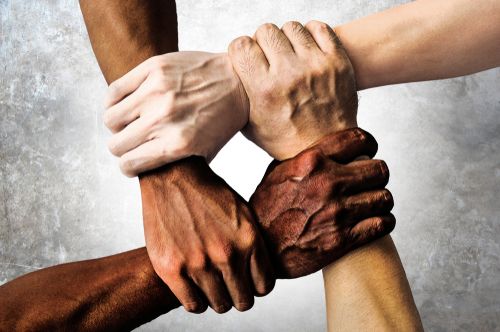 For many people of faith, church is a place of peace and escape from the troubles of the world. They want somewhere they can feel safe to ask questions and explore their faith with like-minded individuals. Worship services are designed to practice the rituals of belief, comfort the anxious and give hope to those who need it.
For many people of faith, church is a place of peace and escape from the troubles of the world. They want somewhere they can feel safe to ask questions and explore their faith with like-minded individuals. Worship services are designed to practice the rituals of belief, comfort the anxious and give hope to those who need it.
The other side of faith, however, warns against becoming too comfortable. The inspiring leaders on whose teachings most world religions are based may promise rest, but they also exhort followers to be a force for good in the world. This often involves not only recognizing problems such as racism but also addressing them. It is imperative that believers have a plan for confronting racism both as a collective group and also as individuals when they encounter it in their everyday lives.
Frame the Conversation
When you first start talking with your congregation about having a plan for confronting racism, you may get some pushback. It's unlikely that anyone is going to say that racism should be ignored, of course. However, you will likely encounter those who consider having a premeditated response to be expecting the worst of others. Instead of reacting to this hesitation with impatience, think about where it is coming from and frame your response accordingly.
This concern probably comes from a good place. They want to give others the benefit of the doubt and assume that their intentions are good. Point out that they can still have a positive outlook while thinking about what to do if someone does make a mistake. There are many situations in life in which expecting the best does not negate the need to plan for contingencies that may occur and take the necessary steps to address those possibilities:
- Insurance for health, home, car and other aspects of life
- Gates and locks to protect property
- Packing a change of clothes in a young child's preschool bag
- Carrying medications in case they come into contact with dangerous allergens
If you frame the conversation in terms of preparing for something that could happen, you are more likely to have congregants see a need for a plan. Once they understand that it's necessary, you can discuss how confronting racism may look.
Plan for Calm Responses
When you first bring up the importance of confrontation, people may feel nervous about initiating conflict. Reassure them that you are not asking them to step out of their personalities; you are merely asking them to bravely say what is probably already on their minds. They don't have to point and shout, "You're a racist!" any time someone commits a microaggression. There is almost always a productive way to guide the conversation that is less likely to result in defensiveness.
It doesn't happen naturally, though, particularly for people who are not in the habit of confronting racist statements. Invite members of the church to engage in a series of practice sessions. Provide scenarios they may encounter. Discuss each scenario as a large group to ensure that everyone is on the same page about why the statement needs to be addressed. Then break off into dyads or small groups to practice responding to the statement. This is a practical way to experience what works and what doesn't.
These conversations aren't complete until you talk about another elephant in the room. What should they do when someone calls them out for an insensitive or racist comment? Learning how to respond graciously to confrontation by acknowledging the impact instead of the common gut reaction of explaining why the other person misunderstood is just as important as helping others come to terms with the work they may still have to do.
Confronting racism both corporately and individually is important work for people of faith. It extends to all the promise of comfort that many lifetime churchgoers already enjoy when they gather to meet.



